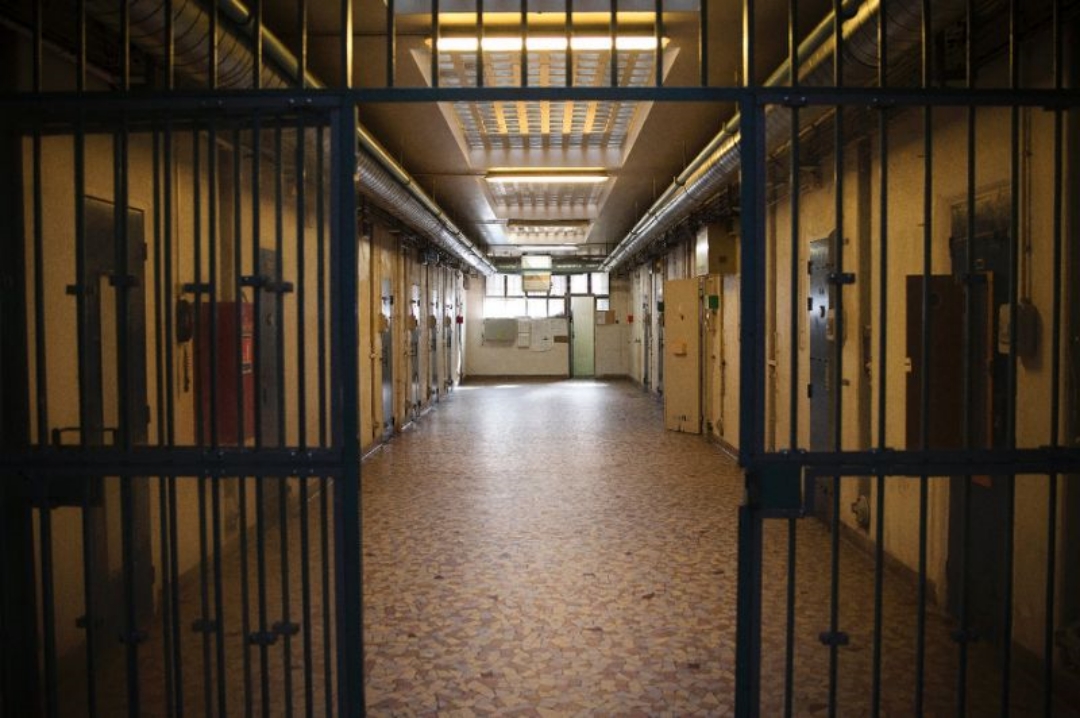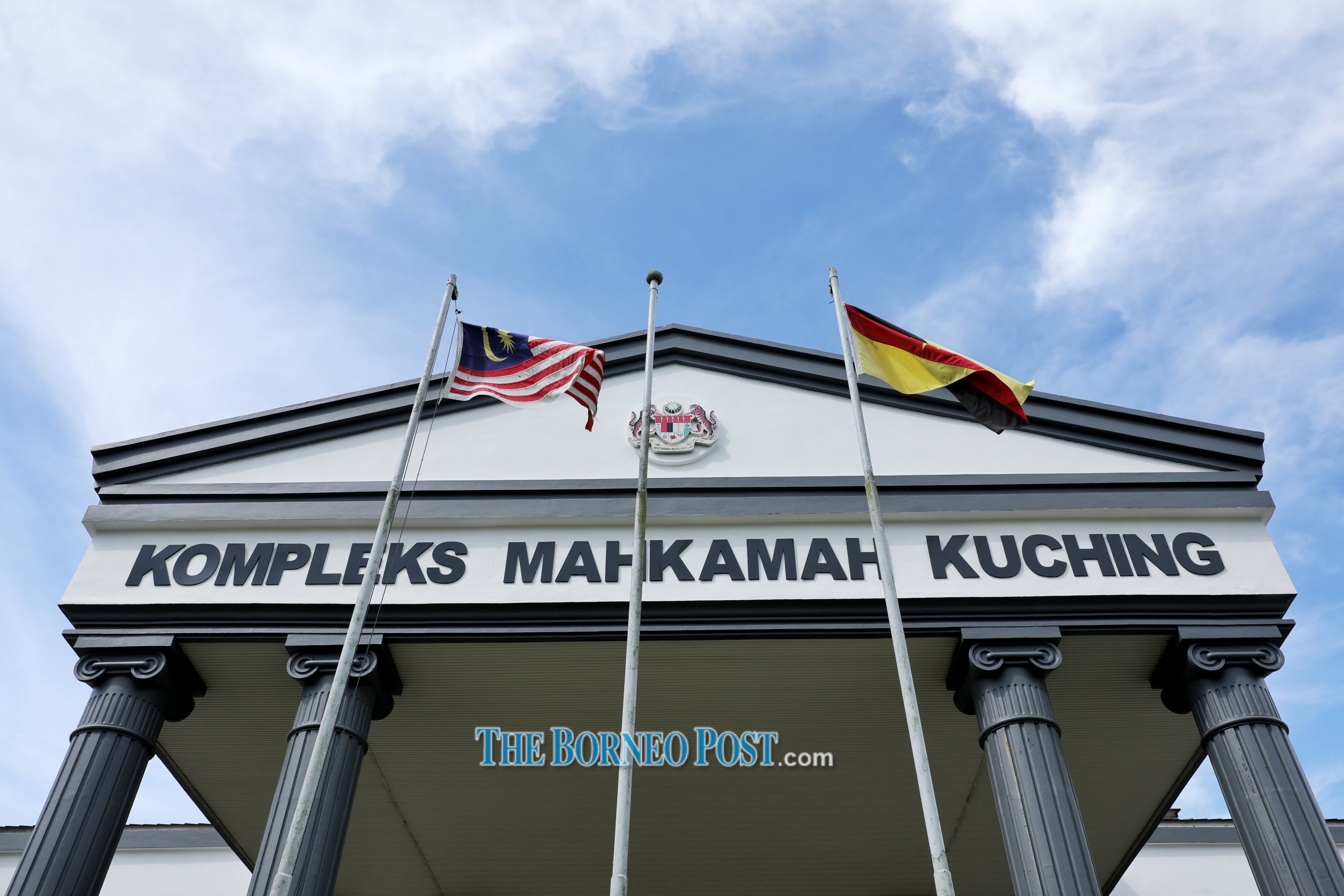ADVERTISE HERE

Abang Johari performs the gimmick launch for an event in Kuching, where he has announced the availability of scholarships to eligible Sarawakians for them to pursue master’s degrees in various engineering fields at top universities overseas. In this photo, the Premier is flanked by Sagah (third left) and Deputy Minister of Education, Innovation and Talent Development Sarawak Datuk Dr Annuar Rapaee. — Photo by Sarawak Public Communications Unit

TIME has arrived to ramp up the integrated approach to development, accelerating the mechanisms to generate enormous potential advantages and benefits across the social and economic landscape.
The target has been set. With just five years away, Sarawak remains on track with its transformation plan to be a developed state by 2030.
Sarawak has taken several bold and strategic measures to expand and strengthen its economic base and enhance its grip on digital technology applications.
Some of the actions defy conventional practices inherent in most controlled government and democratic system where top-down approach still holds sway.
Yes Minister, the human element – the talent and trained mind – is what really drives Sarawak’s progress towards realising its transformation strategy among all of this.
Education, talent development and innovation are to be viewed as a winning combination capable of producing the new generation of Sarawakians with the relevant knowledge and skills that meet the requirements and expectations of the industry or major economic activity in Sarawak.
The Sarawak government’s strategy on education and human resource development, which is overseen by a ministry under Dato Sri Roland Sagah Wee Inn, reflects this.
The combination of knowledge and innovation is the only way to achieve rapid economic growth.
Why is innovation necessary for economic progress?
Why is innovation needed in this situation?
One of innovation’s primary benefits is that it stimulates economic growth. To put it succinctly, creativity has the potential to boost productivity – the ability to produce more with the same input.
Transformation
Yes, Minister. Education is the key to creating, adapting and spreading knowledge for technological transformation in the network age.
Basic and secondary education create ability to learn and interpret information whereas the tertiary education is responsible for producing higher level workforce, producing new knowledge and adapting knowledge produced elsewhere.
Premier Datuk Patinggi Tan Sri Abang Johari Tun Abang Openg oversees an integrated process of education for Sarawak that spans a planned continuum, with a predetermined aim for each system’s end result from elementary to university.
It emphasises a humanity-driven philosophy in which educational pedagogy must find a suitable context in the ever-changing times and, especially in connection to the formation of a citizenry that is beneficial to industry and, thus, productive to the economy.
The person benefits from the system just as much as he contributes to it.
This kind of contemporary, all-encompassing approach to education and talent development brings to light some of the early works of Bertrand Russell and Paulo Freire on progressive learning paradigm, which have been widely adopted and incorporated into the policy blueprints of emerging economies.
Mismatch
Mismatch was a product of the old-school education system and it grew to be a social problem. Over the past few years, an increasing amount of evidence has emerged on the skills mismatch and skills gap generated by university graduates.
The skills gap is one of the largest challenges that today’s workforce faces. As industries and technologies continue to evolve, there is a growing mismatch between the skills and qualifications possessed by the available workforce and the skills required by employers to fill specific job roles effectively.
In mitigating this, more industry input ought to be incorporated into curriculum designs in order to foster educational innovation and ensure that subjects taught in higher education are useful and relevant.
Yes Minister, the Sarawak government is aware of this and is working to improve the system at the establishments within its legal purview.
Yes, it is essential to use a demand-driven education paradigm. It is inadequate to concentrate only on digital and technology skills as one must also develop fundamentally human traits like flexibility, empathy, resilience, and agility.
To support development and encourage sustainable economic growth, a tech-savvy workforce must be trained. By making investments in these people, the government is assisting them in transitioning from being obliging observers to becoming active participants in their local, regional, and global communities.
The opportunity thus extends beyond the precinct of the workplace, and the trained workforce can apply his knowledge and skills more widely and usefully.
Over time, they become an important part of the new social construct of the community that thrives on the progress of the respective development sectors.
Comprehensive strategies
On workforce development, Sarawak’s effort at introducing a comprehensive set of strategies, programmes, and initiatives aimed at enhancing the skills, knowledge, and capabilities of the workforce in a particular sector or industry is commendable, and it complements well with United Nations Development Programme (UNDP)’s development-driven education initiatives.
The goal of these training programmes is to improve workforce competencies so that workers remain competitive and flexible in their particular fields.
Technical skills, soft skills, leadership development, and industry-specific knowledge are just a few of the many topics that may be covered in workforce development programmes.
The mix of skills and knowledge that results from these will also contribute to innovation, which is a major factor in change and competitiveness.
The formal education system and skills training that improve the workforce are key drivers of Sarawak’s overall economic growth and development.
Workforce development initiatives contribute to economic growth and job creation by producing skilled and educated labour forces that draw in international investment.
They also strengthen economic resilience, close the skills gap, and boost industry and sector competitiveness.
The evolutionary economics tradition and the sectoral systems of innovation approach offer important new insights into the relationship between economic development and higher education.
Sarawak acknowledges this, although it is still in the early years to firm up the resultant framework. Yes, Minister.
Education-economic development relationship
When thinking about the connection between education and economic development, the intersection between the global, state, sectoral and spatial dimensions is crucial.
The Sarawak policy thrust on education and innovation with the view to match products of the education system with the industry should shed some light on this and even point to the prospect ahead.
The prospects, values, and problems of the fourth industrial revolution and its ‘Internet-of-Things’ (IoT) components must be understood by leaders in the education sector.
In order to prepare for any disruption brought on by the Fourth Industrial Revolution, the education system has to be reorganised and reformed.
As the local universities and other higher education institutions seek to better support graduate employability, there has to be significant focus on embedding career-focused and work-based pedagogies, including work-integrated learning and professional enrichment to prepare graduates for gainful employment in the industry.
Yes Minister, the government’s commitment towards enhancing the quality of education in Sarawak and creating opportunities for the younger generation to pursue their studies up to university, provides an almost assured pathway has swung into action.
If that is not enough, the Sarawak government has initiated several other bold measured steps that went against the norm that the majority of other states in the country would conveniently follow.
English, and setting sight on Oxbridge
In making good use of the relevant provisions in Malaysia Agreement 1963 (MA63), Sarawak has been able to put its best foot forward to explore new territories in order to advance its industrial agenda and strengthen its economic base.
The use of English as a second official language in Sarawak is a testament to this.
The setting-up of two Sarawak-owned Yayasan Sarawak International Secondary Schools near Kuching, with another four soon in Betong, Sibu, Bintulu and Miri, is proof of the Sarawak government’s commitment towards providing quality secondary education to qualified students, especially those from the rural areas, to pursue their studies in these institutions where English is the medium of instruction.
And these institutions, with curriculum and assessment articulated by the University of Cambridge Examination Syndicate, provide a pathway for students with good results to enter prestigious universities in the UK such as Cambridge, Oxford, Imperial College, LSE, Edinburgh and Glasgow.
Masters scholarships for engineering
In addition to this, the Premier has also announced that, a number of scholarships will be provided to qualified Sarawakians to pursue master’s degrees in approved engineering disciplines in the UK and other recognised universities abroad.
The scholarships offered by PetChem, Yayasan Sarawak and Petros – these awards are a part of a bigger strategy to retain skilled residents of Sarawak and make sure that they contribute significantly to the state’s development.
It is critical to acknowledge the importance of technical education and the benefits of a lifetime learning framework that integrates education, training, and on-the-job learning.
There are advantages to including the private sector in the provision of education, particularly through partnerships.
Its presence may also act as an innovation catalyst in addition to adding capacity. It is possible to expand the private sector’s reach to encompass international suppliers.
Yes, Minister!
* Toman Mamora is ‘Tokoh Media Sarawak 2022’, recipient of Shell Journalism Gold Award (1996) and AZAM Best Writer Gold Award (1998). He remains true to his decades-long passion for critical writing as he seeks to gain insight into some untold stories of societal value.









 English (US) ·
English (US) ·